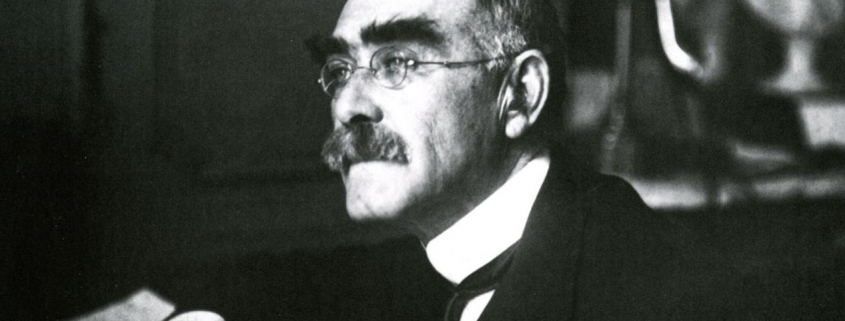Kipling’s Values
Originally published in OR Briefing 64, May 1987
THE BOOKS and poems of Rudyard Kipling have always been astoundingly popular. In his lifetime his stories sold fifteen million copies in this country and the US alone and his sales have been steady ever since his death.
Kipling has been loathed as much as admired. The ‘intellectuals’ never cared for him. But then, he didn’t like them. He wrote of ‘long-haired things’ and pilloried them in more than one story (e.g., in ‘My Son’s Wife’). He liked men of action rather than thinkers: pallbearers at his funeral were admirals and generals, not writers. So the intellectuals hit back, sneering at his patriotism, his racialism, his brutality and all the rest of it. And the fact that his books continue to sell while theirs dwindle would be a further proof to them of his quintessential vulgarity.
Some years ago Alec McCowen did Kipling solo on the London stage and some critics noted rather sourly that people in the audience kept breaking out with spontaneous ‘ahs’ of approval, ‘too true’, ‘how right he was’ and so on. There is no doubt that he touches more than a chord in people; it’s a whole symphony.
Kipling realised the value of his inheritance as an Englishman. His friend Cecil Rhodes had put it crudely when he said, ‘To have been born an Englishman is to have won first prize in the lottery of life’. Kipling was not satisfied with that. He dug deeper, down into the buried layers of human experience where love of hearth and home has its beginnings. And he came up with that ancient wisdom which our generation in its foolish infatuation with inessential things has lost. He put some of it into his books for children which are really books for adults: ‘Puck of ~ Hill’ and ‘Rewards and Fairies’. And he also put it into his ‘Sussex’ poems from one of which I have taken this verse:
So to the land our hearts we give
Till the sure magic strike,
And Memory, Use, and Love make live
Us and our fields alike –
That deeper than our speech and thought,
Beyond our reason’s sway,
Clay of the pit whence we were wrought
Yearns to its fellow-clay.


